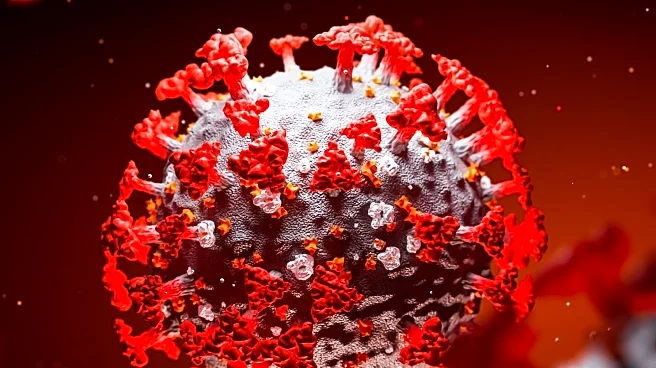What's Happening?
The World Health Organization (WHO) has delivered 400 doses of the Ebola vaccine to the epicenter of the outbreak in the Democratic Republic of Congo's Kasai province. This marks the first Ebola outbreak in the region in 18 years. The delivery was facilitated by a United Nations helicopter due to the remote location and poor road access. The outbreak has resulted in 68 suspected cases and 16 deaths, with health workers being prioritized for vaccination.
Why It's Important?
The outbreak poses a significant public health challenge, particularly in a region with limited healthcare infrastructure. The delivery of vaccines is crucial in preventing the spread of the disease, especially among healthcare workers who are at high risk. The situation highlights the importance of international cooperation and rapid response in managing infectious disease outbreaks.
What's Next?
Efforts will continue to contain the outbreak, with additional vaccine doses expected to be sent from Kinshasa. The WHO and local authorities are working to improve access and funding for the response. Monitoring and tracing contacts of suspected cases will be essential in preventing further spread. The international community may need to provide additional support to ensure a comprehensive response.
Beyond the Headlines
The outbreak underscores the ongoing vulnerability of regions with limited healthcare resources to infectious diseases. It raises questions about the sustainability of current funding models for outbreak response and the need for long-term investment in healthcare infrastructure in vulnerable regions.










